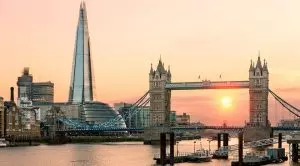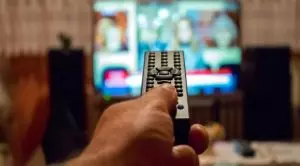 The largest gambling operators in the UK have voluntarily agreed to stop advertising their services on television during live sports events.
The largest gambling operators in the UK have voluntarily agreed to stop advertising their services on television during live sports events.
An agreement for a “whistle-to-whistle” TV advertising ban has been reached by the Remote Gambling Association (RGA), which includes bet365, Paddy Power and Ladbrokes. The decision has come after increased pressure on gambling companies due to the massive amount of adverts aired during sports broadcasts.
There was clear public support for these restrictions and I'm glad that for once the industry, led by the Remote Gambling Association, has taken its responsibilities seriously and listened.
— Tom Watson (@tom_watson) December 6, 2018
At the beginning of the week, it became clear that UK gambling operators were preparing to review their television advertising strategies. The deal followed extensive talks between the companies, with William Hill, Betfair, Gala Coral, SkyBet, Stan James and Betfred also taking part in the negotiations. The agreement has come to guarantee that gambling adverts will be aired only for a certain period of time before and after a game is aired on TV.
The extensive advertising used by local gambling operators to attract customers during live sports events has also fuelled fears that it contributes to the increasing gambling addiction rates in the country. A report of the UK Gambling Commission (UKGC) has shown that about 430,000 British citizens can be described as problem gamblers. In addition, anti-gambling campaigners believe that extensive advertising fuels under-age gambling.
The agreement needs to get a ratification from the Industry Group for Responsible Gambling (IGRG) in order for the ban to take effect. According to industry insiders, the ratification could be expected to take place by the end of December or in early 2019.
Gambling Operators Criticised for TV Advertising Strategies
 As Casino Guardian reported, British viewers were literally bombarded with gambling ads during the 2018 World Cup. According to anti-gambling campaigners, such a large amount of adverts makes gambling look normal to people and could make children and more vulnerable people believe that gambling is a risk-free pastime activity.
As Casino Guardian reported, British viewers were literally bombarded with gambling ads during the 2018 World Cup. According to anti-gambling campaigners, such a large amount of adverts makes gambling look normal to people and could make children and more vulnerable people believe that gambling is a risk-free pastime activity.
Previously, the Remote Gambling Association has shared that it takes in mind public concerns.
The proposal for the “whistle-to-whistle” ban has been similar to the one made by the Labour party. As mentioned above, gambling operators will be suspended from airing gambling ads on TV during live sports events. The ban will include any sports games which start before the 9:00 PM watershed.
A man can dream @MayneReport BRITAIN'S MAJOR GAMBLING COMPANIES AGREE TO STOP ADVERTISING DURING LIVE SPORTS BROADCASTS – BBC CITES REMOTE GAMBLING ASSOCIATION – Reuters News
— Alex Turnbull (@alexbhturnbull) December 6, 2018
Under the agreement made between the RGA members, horse racing will be exempt from the gambling advertising restrictions for the time being. The reason for that is the fact that commercials are important for keeping the viability of this type of gambling. Apart from that, all other sports will be included in the ban. The impact of the gambling advertising ban is expected to be mostly felt on football, considering the large financial value of the sport to both broadcasters and gambling operators.
The relationship between football and gambling has been a much-discussed topic lately. Almost 60% of the English football clubs in the top two divisions have gambling operators as shirt sponsors. This has fuelled much criticism, with anti-gambling campaigners blaming football clubs for being greedy and signing gambling operators as their major kit sponsors.
- Author


